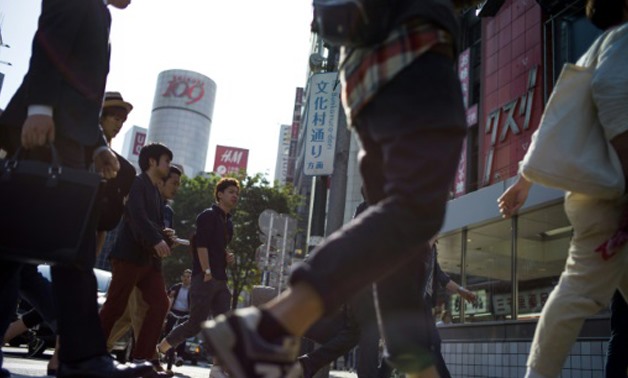
Japan's prospects have been improving on the back of strong exports, with investments linked to the Tokyo 2020 Olympics also giving the economy a shot in the arm - AFP
Tokyo, June 30, 2017: Japan's consumer prices rose for the fifth straight month in May, government data showed Friday, but weak household spending underlined the challenges facing Tokyo's fight to rid the world's number three economy of deflation.
The country's prospects have been improving on the back of strong exports, with investments linked to the Tokyo 2020 Olympics also giving the economy a shot in the arm.
But consumer spending remains tepid and the Bank of Japan has struggled to lift inflation despite years of aggressive monetary easing.
After stripping out the volatile cost of fresh food, the inflation rate came in at 0.4 percent, the fifth consecutive monthly rise following a 0.3 percent increase in April and a 0.2 percent gain in both March and February, according to the internal affairs ministry.
But Friday's figures are still way off the Bank of Japan's 2.0 percent inflation target -- seen as crucial to conquering Japan's long struggle to slay deflation, blamed for holding back the once-booming economy.
Separate data showed household spending fell 0.1 percent in May from a year ago, extending its declining streak of more than a year.
Other figures released on Friday were also stagnant.
Japan's factory output in May dropped 3.3 percent, sinking from a 4.0 percent surge in April, while the unemployment rate was at 3.1 percent in May, compared with 2.8 percent the previous month.
Japan has been struggling to defeat years of deflation and slow growth that followed the collapse of an equity and property market bubble in the early nineties.
Falling prices can discourage spending by consumers, who might postpone purchases until prices drop more or look to save money instead.
That puts pressure on businesses, creating a cycle in which firms then cut back on expanding production, hiring new workers or boosting wages.
Prime Minister Shizo Abe swept back to power in late 2012 on a pledge to reignite Japan's economy with a plan dubbed Abenomics.
The scheme -- a mix of huge monetary easing, government spending and reforms to the economy -- stoked a stock market rally and fattened corporate profits.
But there has been growing criticism about the plan's muted impact on the wider economy.

Comments
Leave a Comment